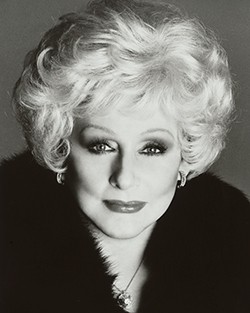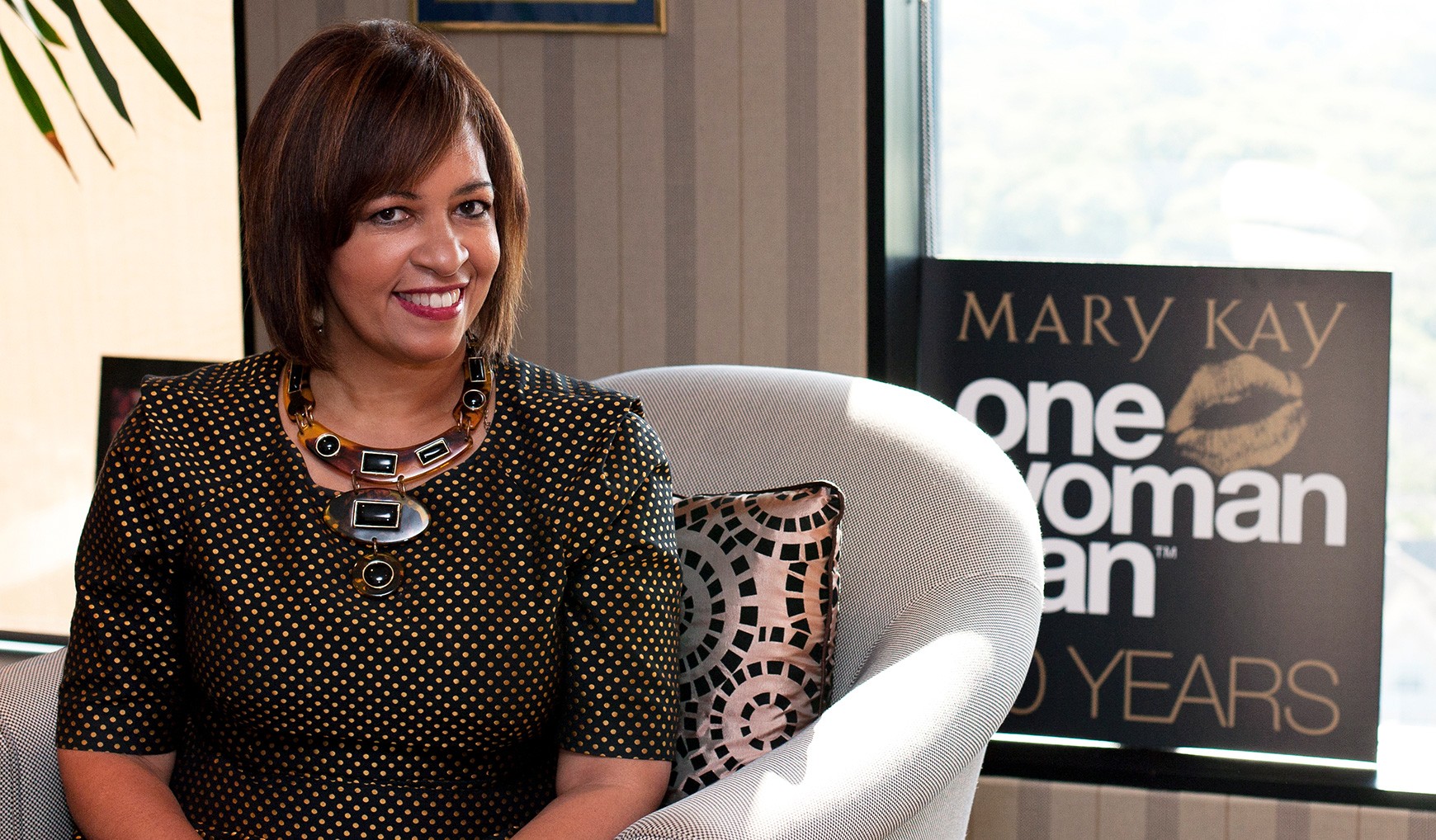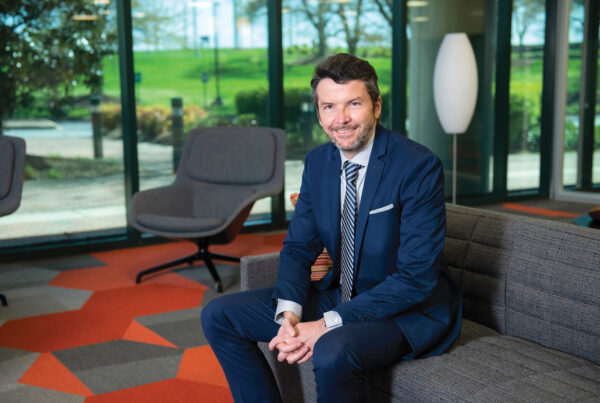It all could have ended very badly. A few years ago the local marketing team for Mary Kay Inc. in China came up with the idea for a promotion — a model search contest — that frankly didn’t dovetail neatly with the global brand strategy the cosmetics giant had developed at its corporate headquarters a world away in Dallas, Texas.
Faced with the question of whether to nix the idea altogether, Mary Kay’s chief marketing officer, Sheryl Adkins-Green, instead offered some guidance about how her Chinese colleagues could tweak their idea to be more synergistic with company-wide efforts, but otherwise gave her blessing. “We said we look forward to what you’re going to learn from this,” recalls Adkins-Green, who has been Mary Kay’s CMO for the past five years.
The resulting program was such a rousing success that the team behind it was invited to the company’s global marketing conference to share what they learned – the contest has continued to evolve, and Adkins-Green herself is now a judge. More importantly, the hands-off approach is symbolic of the philosophy that has allowed this half-a-century-old company to grow from founder Mary Kay Ash’s single 500-square-foot Dallas storefront into a global leader in the ultra-competitive cosmetics industry. “I think that is an example of knowing when, where, and how to let go and leverage local insight and the talent of the local marketing team and look to that as content that other markets are going to be able to leverage down the road,” says Adkins-Green.
In other words, it’s about trusting and empowering people to drive the kind of continual transformation companies need to flourish — both internationally and at home. There is an abundance of evidence to demonstrate that this quintessentially American brand has developed an enviably successful approach to the always complicated and nettlesome goal of global expansion. Indeed, Mary Kay, which manufactures and distributes over 600 cosmetic and beauty products, currently operates in 37 countries and has a global network of over 3 million independent sales consultants.
China has long been a focus of attention, particularly areas of the country other retailers might ignore. “Over the course of the last five to eight years, we’ve started to look at what China will need in five years,” Mary Kay CEO David Holl told Bloomberg News in 2011. “We’ve managed the transition, so it’s no longer all about the U.S. …We don’t need a shopping mall to sell, so we can do extremely well in [Chinese] cities where they don’t have all the infrastructure.”
It has been an effective strategy. At the start of this year, Forbes ranked Mary Kay at number 163 on its list of the largest privately held companies, with estimated revenues of around $3.5 billion annually. Several independent analysts pegged 2013 as a marquee year for Mary Kay — it’s estimated that the company recorded a number of its highest grossing months in history during the year — and international sales play a central role in its ongoing growth. In fact, over the past decade, the portion of Mary Kay’s overall revenue from international markets spiked from 30 percent to 70 percent, with countries like China, Russia and Brazil growing in importance.
While Mary Kay has clearly found a recipe that seems to work as well in Shanghai and São Paulo as it does in St. Louis and Seattle, Adkins-Green is the first to say there’s nothing easy about international success (see sidebar for her tips on going global). Take China, now the company’s largest market. Everything about succeeding there is a challenge, starting with the huge geographic distance, which makes it hard to train or even communicate in real-time with colleagues. But even when communication is not an issue, culture is. “The challenge with China is not actually because of cooperation, but culturally, it’s probably the most different than the U.S.,” Adkins-Green says.
A CULTURE OF QUIET, EVERYDAY TRANSFORMATION
Although it’s just one small example, the Chinese model search contest Mary Kay pulled off is emblematic of the kind of transformation and adaptation that is required to win in new and challenging markets — one that doesn’t necessarily require seismic changes to strategy and culture. Rather, while less splashy and much less disruptive, Mary Kay has established a culture that embraces daily transformation — perhaps more accurately described as evolution — that nimbly adapts to the inevitable avalanche of new opportunities and challenges.
TIPS ON PURSUING GLOBAL GROWTH
Expanding into global markets isn’t easy. Besides the obvious challenge of different languages and cultures, there are legal and regulatory hurdles to overcome. Is it worth the hassle? Well, for Mary Kay, which first ventured internationally when it entered the Australian market in 1971, the answer is a resounding “yes.” Over the past 10 years, the company’s international revenues have grown from 30 percent of total earnings to 70 percent. As one of the executives who has helped guide that growth, CMO Sheryl Adkins-Green has some suggestions about how brands can successfully expand globally.
- THINK LIKE MARCO POLO: When you have an explorer’s mindset, she says, you are not judging but you’re very open to learning.
- GIVE YOUR EARS A WORKOUT: Engaging a global team will determine your success. And they have a lot to tell you about what works and what doesn’t on a local level. Listen to them.
- MAKE THOMAS EDISON PROUD: Or, for that matter, make Mary Kay Ash proud. Ash once said “we fail forward to our success,” which is an eloquent way of saying that you won’t succeed if you don’t embrace experimentation. Adkins-Green says she loves that she can go back to those words and encourage her team that it’s OK to fail when something hasn’t gone as planned. Although she has a team of perfectionists, she often points out why a particular action was taken, what was learned, and why it’s usable.
- COLLABORATE: This doesn’t just mean coordination and consensus building. Collaboration, Adkins-Green says, relies on trust. To collaborate means you let go and let your partners run with the ball. If the CMO is the quarterback, you need to be comfortable handing things off.
- CELEBRATE: If you have success in your overseas efforts, indulge in some well-deserved celebration. It’s a way to keep good things going. Bring the energy back to what got accomplished, what was fun along the way, and the excitement of that accomplishment. It is that energy that’s going to fuel the next round. That’s how you keep momentum going.
There are a host of reasons why Mary Kay eschews the typically painful culture pivots that so many companies endure when they decide reinvention is a must. Simply put, the company’s executives have never lost sight of the value of the trusted relationships between the Mary Kay sales force and their customers.
“In the case of Mary Kay, the brand is the independent beauty consultant,” says Adkins-Green. “The independent beauty consultant knows her customer personally,” she says. “She’s going to see her next week at the PTA meeting, so there’s an accountability and trust that comes out of that relationship.”
The CMO says it’s the executive team’s job to provide their salespeople with whatever they need to excel — which, of course, makes sense because the company’s business model is such that the individual success of a salesperson translates to company success. The most obvious way Mary Kay helps its beauty consultants is by developing and distributing a steady stream of high-quality products while also handling the not insignificant regulatory requirements that come from serving dozens of markets around the world.
Adequately listening to and serving the needs of millions of beauty consultants located around the globe requires the capacity to adapt and transform on a daily basis. Still, while allowing for the sort of fluidity and flexibility that is so essential in order to have success in different markets, there is a bedrock core to the Mary Kay culture that provides important focus. “We are all aligned around a common mission of enriching women’s lives and supporting the success of the sales force,” says Adkins-Green. “By definition, we are all on the same page.”
Which is not to say that the best way to serve the sales force and, ultimately, women customers is not a subject of vigorous internal debate. “While we have differences of opinion, it will never really get to the point of being a struggle or an argument,” she says. “When we do have a difference of opinion, we talk in terms of what is going to help the independent beauty consultant be successful and that is usually the tie-breaker if there is a debate.”

DISTILLING THE MARY KAY MESSAGE
With customers and beauty consultants located across the globe, one of the most difficult questions Adkins-Green has faced as CMO is how to settle on the right messages to appeal to customers. “The toughest challenge when I took over this responsibility was to really consolidate and combine our brand messaging around the world because it means so many things to different people,” she says. As a start, she examined the kind of adjectives people already used to describe Mary Kay and found a mixture of positive and negative, old-fashioned and innovative terms — it was a confusing mélange for some members of the executive team, many of whom didn’t agree on what the brand stood for. So Adkins-Green worked with a team to crystallize the essence of the brand and develop a vision statement. “It’s aligned around three key components: irresistible products, a rewarding opportunity, and positive community impact. So, with just seven words, we built a communication strategy that not only resonated with the Mary Kay business around the world but, most importantly, with the independent sales force.”
THE COLLABORATIVE NATURE OF TRANSFORMATIONAL LEADERSHIP
For her part, Adkins-Green feels as though she landed at just the right company to match her own personality, skills, and leadership style. Before arriving at Mary Kay in 2009, Adkins-Green held senior marketing positions at Alberto Culver, a leading beauty products manufacturer whose brands include Noxema and St. Ives, as well as Citibank and Kraft Foods. As has been the case in her previous jobs, Adkins-Green has seen her role largely as a facilitator. “I’m passionate about connecting ideas and people and I think that’s always been my strength,” she says.
While that talent has undoubtedly played a central role in Adkins-Green’s successful career, at Mary Kay the ability to build and foster relationships is particularly resonant — after all, that’s how the company’s beauty consultants have performed so exceptionally. Not surprisingly, Adkins-Green estimates that about 80 to 90 percent of her time is spent engaging people at Mary Kay and cultivating relationships — which is far different from her job at Kraft, for example, which included devoting plenty of hours to product development.
It’s important to understand the nature of all of this people-focused effort. While it’s true that Adkins-Green has an essential role in developing and implementing branding and marketing strategies, she also says that it’s her task to influence and shape decisions rather than outright dominate them. Part of that, she says, means being an internal advocate. “Part of my style is that I’m a cheerleader for the brand and for marketing’s role in the sales force’s success every day,” she says. “So when it comes time to actually advocate for a new initiative, I feel like I already have some momentum before the conversation even starts.”
Clearly, that’s not all there is to making sure that marketing efforts receive the C-Suite attention and assistance they need. When she wants to push an important initiative that she thinks is the “proverbial no-brainer,” she’ll often “come in and hit it hard with an energetic pitch.” Then again, if something is potentially more controversial and delicate, she’ll seek out input from as many people as possible before she even puts together a recommendation. “It really does depend on the initiative and where I think that stakeholder is, in terms their ability and readiness to support,” she says.
But if Adkins-Green wants any confirmation that she made the right decision in coming to Mary Kay, it comes each night at bedtime. What prevents slumber aren’t challenges and headaches and deadlines, she says. “What keeps me up, with all sincerity, is excitement about what we can do and what we will be doing,” she says. And when does she sleep like a baby? “It’s when I have good feedback from the sales force.”

TECHNICALLY BEAUTIFUL
Like every large company, Mary Kay grapples with how to best use technology to drive results. “As a brand that has always been driven by word of mouth, the whole shift for digital and social media to be the primary marketing channels is a huge opportunity for Mary Kay,” says Adkins-Green.
“The independent beauty consultants websites are like a personal makeup concierge,” Sara Friedman, Mary Kay Inc.’s vice president of U.S. marketing, said in a press release announcing the changes, which came as part of the company’s 50th anniversary celebrations in 2013. “Once a woman goes to her personal Mary Kay independent beauty consultant’s website or connects with one through the help of the consultant locator, she can save her favorite products, view application tips, get personal product recommendations, and order products. Plus, she can always see how the newest trend looks on her with our popular online virtual makeover. The website makes running a Mary Kay business easier and makes buying our products even more fun and convenient.”






